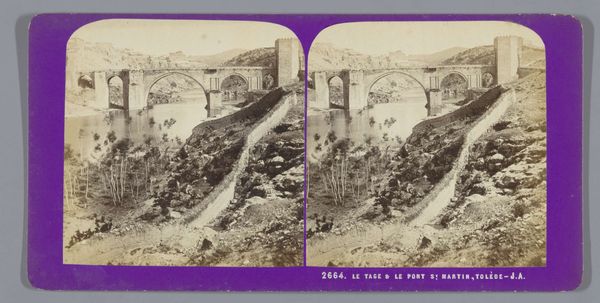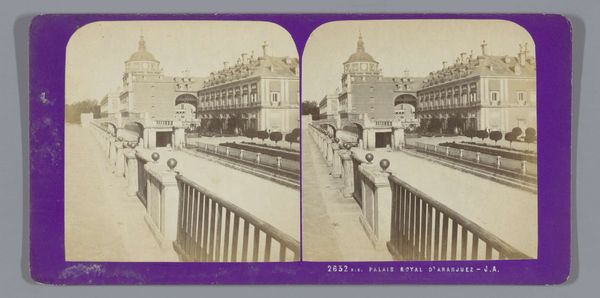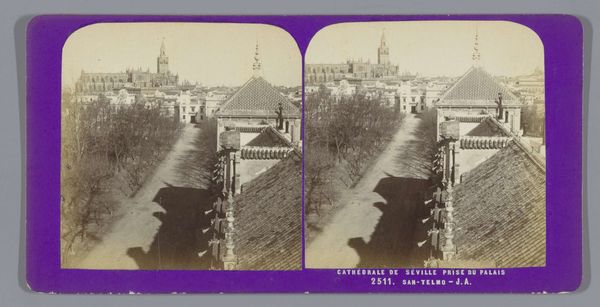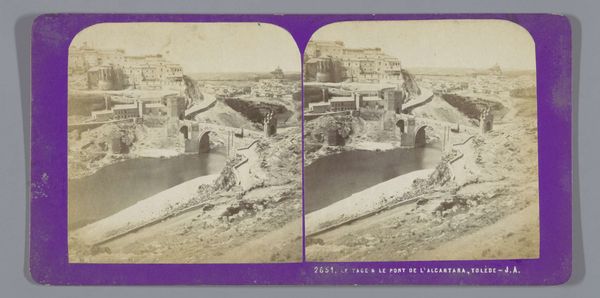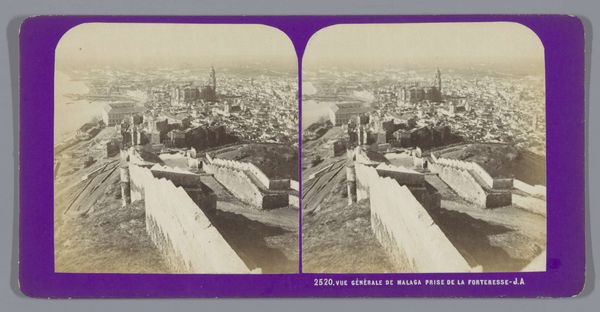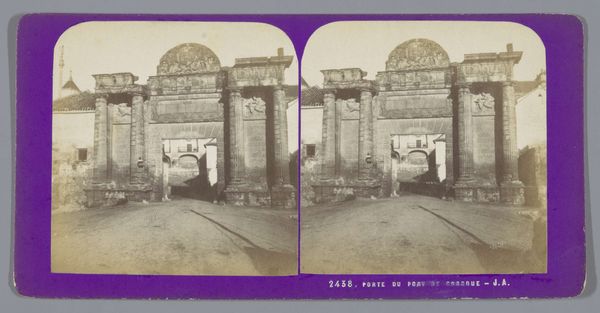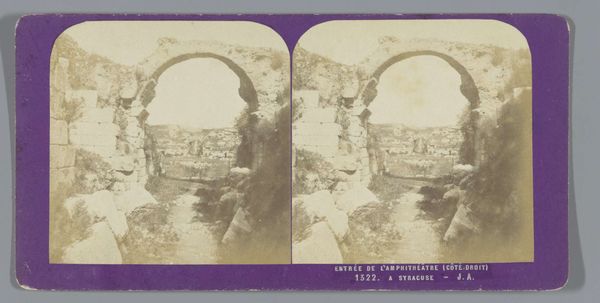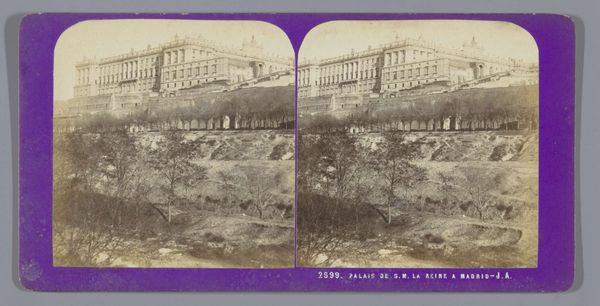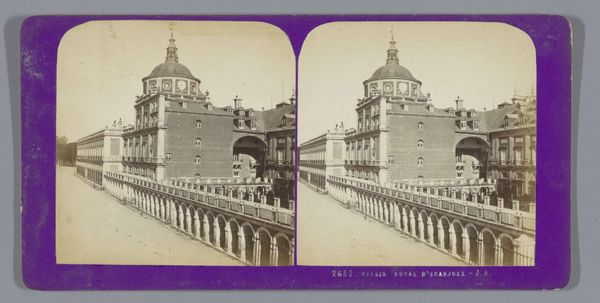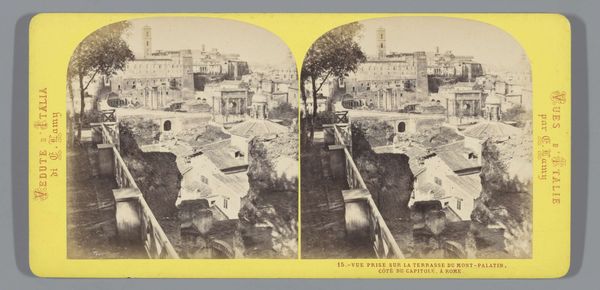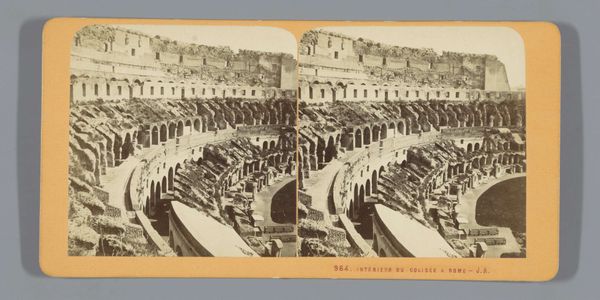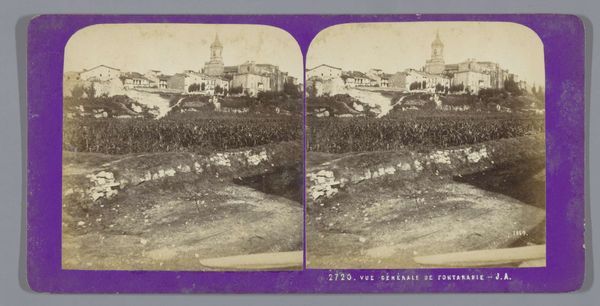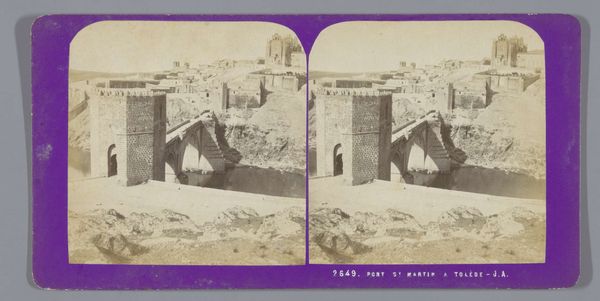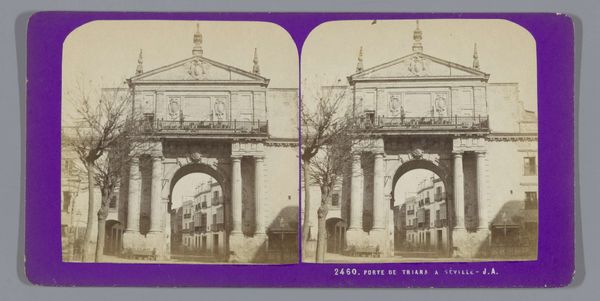
photography
#
garden
#
landscape
#
photography
#
orientalism
Dimensions: height 85 mm, width 170 mm
Copyright: Rijks Museum: Open Domain
Curator: Looking at this photographic stereo card by Jean Andrieu, taken sometime between 1862 and 1876, I feel transported—what's your immediate reaction? Editor: I'm struck by a sense of calculated tranquility, almost sterile. It feels posed, despite supposedly capturing the natural sprawl of the Alcazar gardens in Seville. It’s orderly to the point of feeling unsettling. Curator: Ah, unsettling. Interesting. For me, it's the dreamy quality of the sepia tones. This type of image, meant to be viewed with a stereoscope, almost perfectly recreates depth and grants you a virtual "presence" in the gardens. Editor: It certainly achieves depth through its use of converging lines, drawing the eye along that fortified walkway, but at the expense of vitality. The light, though consistent, is strangely devoid of warmth. It presents a geometry rather than a garden. Curator: Perhaps it is the contrast of cultivated nature meeting architectural solidity, a space where human intervention quietly orchestrates the 'natural'. There’s the linear architecture contrasted against the more haphazard arrangements of shrubbery. This was a period, of course, where there was a heightened fascination with ‘Orientalism’ and the ‘exotic’ was often tamed for the European gaze. Editor: Precisely. Andrieu's work, like much Orientalist art, might exoticize the subject through its content but the structure reflects Western control. The rigidity in composition echoes this—a very structured, almost mathematical attempt to frame the seemingly untamed. It's about ownership and projection, I believe. Curator: I think you nailed it. We both sensed an uneasy aspect that originates not just in the scene but how it's so deliberately presented to the viewer. Editor: A measured control. This photographic garden presents, not so much nature, but the staging of a power dynamic, viewed through a lens. Curator: Beautifully put! I won't look at botanical photographs the same way now.
Comments
No comments
Be the first to comment and join the conversation on the ultimate creative platform.
